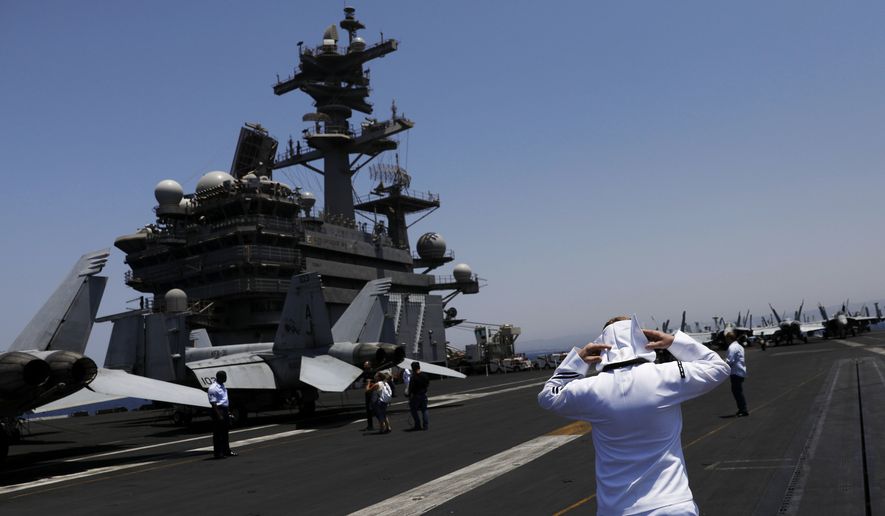Israel’s decision to allow a Chinese government-connected firm to run a key Israeli port is causing rare friction with Washington amid behind-the-scenes pushback from the U.S. Navy, which has a long history of docking at the port.
Intelligence and security concerns raised by U.S. defense officials have prompted Israel’s national security cabinet to revisit a deal to give Shanghai International Port Group (SIPG) control over commercial operations at the port of Haifa in 2021, according to an Israeli news report.
While the Israeli Transportation Ministry struck the agreement with SIPG — a company in which the Chinese government has a majority stake — back in 2015, the Jerusalem Post reported Saturday that the deal is now coming under interagency review.
Citing Chinese state-run media reports, the Post noted the deal granted SIPG control over Haifa for 25 years in exchange for a commitment by the company to invest $2 billion in a project to transform Haifa’s bay terminal into the largest harbor in Israel.
The catch is that Haifa, Israel’s largest port city, regularly hosts joint U.S.-Israeli naval drills and visits from American vessels — a situation the Post claimed has triggered concern among U.S. officials.
Three sources familiar with the matter told the newspaper on condition of anonymity that concerns U.S. defense officials shared privately with their Israeli counterparts, have prompted the Israeli government to open “a review of the agreement at a high level.”
One of the sources pointed to concern that sensitive infrastructure matters were not properly vetted by Israel’s full national security cabinet prior to approval of the SIPG deal.
Publicly, American Navy commanders have downplayed the appearance of U.S.-Israel friction over the deal, but have suggested the situation is being watched closely by the Pentagon.
“Our US Navy ships frequently visit Haifa, Israel, for both US-Israel bilateral military activity and port calls,” Commander Kyle Raines, a spokesman for the Navy’s Sixth Fleet told the Post, when asked whether China’s coming presence might affect fleet operations in the Mediterranean city.
“For now, there are no changes to our operations in Israel,” he said. “I can’t speculate on what might or might not occur in 2021.”
Analysts claim frustration over the SIPG deal has been brewing for years among U.S. officials and former Israeli military commanders. Increased U.S.-China tensions, as well as growing concern in Washington over the prospect of Chinese military and intelligence expansionism around the world, appear to have pushed the frustration to the surface.
According to Arthur Herman, a senior fellow with the Hudson Institute in Washington, the Chinese government has a “keen interest in establishing a strategic foothold in the eastern Mediterranean through the port of Haifa.”
“With the decline of the U.S. Sixth Fleet in the eastern Mediterranean, U.S. strategic interests have depended more and more on cooperation with Israel’s navy,” Mr. Herman wrote in an analysis posted on the think tank’s website in November. “Such cooperation could be endangered if China’s maritime presence grows.”
He went on to note that Shaul Chorev, a former deputy commander of Israel’s navy, had raised concern over the SIPG deal in Haifa during a recent Hudson Institute conference.
“If asked whether the U.S. should forward-deploy U.S. Navy ships in Haifa port, which will be operated by the Chinese, I would recommend against that,” the former Israeli commander warned, according to Mr. Herman. “The Chinese port operators will be able to monitor closely U.S. ship movements, be aware of maintenance activity, and could have access to equipment moving to and from repair sites.”
• Guy Taylor can be reached at gtaylor@washingtontimes.com.




Please read our comment policy before commenting.